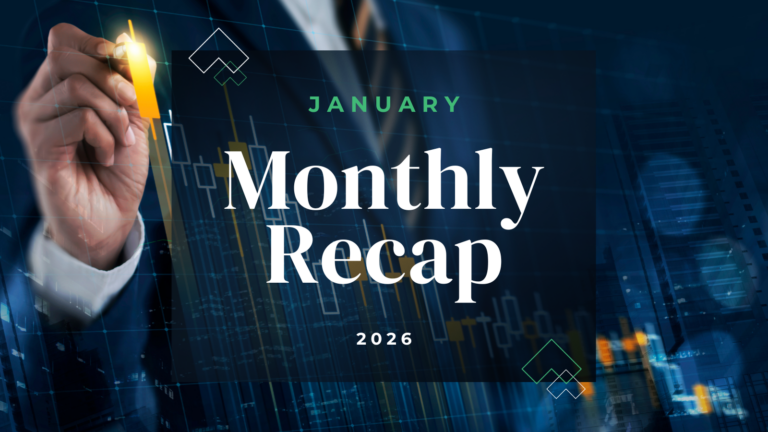US News turned to Moneta CIO Aoifinn Devitt for expert commentary in its story about the Fed shifting gears by slashing bond-buying in half as it prioritizes inflation over employment.
Devitt said markets and consumers should not be surprised by the Powell “pivot” toward a less accommodative monetary stance.
“This, to me, has been very well telegraphed,” Devitt said, adding that markets have shown “stubborn resilience” in the face of possible higher interest rates. As for inflation, she sees that continuing to be an issue in 2022.
“Looking into next year, I do expect inflation to be elevated,” Devitt said.
Inflation has been a dominant theme over the course of 2021. As we approach the end of the year, we’ve recently seen inflation reach 39-year highs.
Earlier this year, Devitt recorded a video podcast about methods to make a portfolio inflation resilient.
You can watch this episode of “Moneta Moneywise” in full here. Below the video, Devitt provides a summary of the discussion.
In this discussion with Georgy Popov, a senior vice president and product strategist in the Newport Beach office of PIMCO, we discussed the persistent rise in inflation recently, and whether it was in fact transitory in nature. PIMCO’s view was that inflation could be higher than 5% at the upcoming announcement and would start recalibrating now to a higher level – possibly remaining over 4% for the remainder of 2021. While it may flatten at the current levels, it considers that reverting back to the Fed target could be slow and bumpy, and that there remained risk to the upside.
PIMCO also notes that this is in line with a recovery period in markets, and its current growth estimate for 2021 is in excess of 7% GDP growth in the US. As inflation is a lagging indicator to growth, it is likely, therefore, that inflation will lag this recovery and will remain persistently high for some time.
It was commented that “inflation does not behave in a ‘well-behaved way.’” Professional forecasters can often be “off” by 1% either way 40% of the time and markets tend to overcorrect in response to even a hint that the Fed will resume its tightening cycle.
We talked then about what is in the “basket” that is used to calculate inflation and that there has been significant variance in the price behavior of its components recently – as an example, used cars are currently considerably higher in price due to a shortage of components for new vehicles, which is driving demand in the used car segment, while gas prices are also higher. On the other hand, owner equivalent rent, which is a proxy used for the expenses of home ownership has been very low recently and has dragged the average inflation level down (this represents around one third of the basket).
I asked Mr. Popov whether we should be concerned about the base effect, in that year-on-year price rises are currently being compared to 2020 when, due to COVID-19 disruptions, prices might have been artificially depressed. He suggested that while this might contribute to the shock of the year-on-year number, its role should not be overstated, as the month-over-month changes (some of which have been as high as 1%) do not include the base effect.
We talked also about whether higher inflation is a global phenomenon, and Mr. Popov suggested that it was, but that it was most pronounced in the US, especially as the rest of the world was still dealing with the negative effects of COVID-19 with lower vaccination levels and a sluggish recovery.
Moving to how inflation might impact portfolios, it was noted that inflation can have a negative impact on portfolios, especially when there are shocks in the short term. Furthermore, the correlation between equities and bonds (typically negative over the long term) can increase during high inflationary periods. This, therefore, leads to weakening the benefits of a diversified portfolio when inflation is high or rising.
As far as how traditional asset classes might react in an inflationary environment, we discussed the following:
- Equities – tend to be positively correlated with inflation in the long term, but negatively correlated in the short term, particularly if there are shocks. Therefore, in a high inflationary environment, equities might initially underperform.
- Bonds – like equities, these can be positively correlated with inflation in the long term, as higher inflation leads to higher interest rates (typically) leading to higher yields on bonds – eventually. In the near term, however, nominal bonds tend to perform negatively in an inflationary environment. When inflation is high and nominal yields are low, this can lead to volatile and sometimes negative real yields – which diminishes the attractiveness of bonds.
- TIPS – inflation-linked bonds have an inflation beta of 1, but ultimately only produce a low rate of return. They display low volatility (4-5% range typically).
- Commodities – while there is no contractual link to inflation, commodities do tend to have positive inflation beta – and to rise in a rising inflation environment. We did discuss at the end of the podcast that current ESG risk awareness did present a headwind to certain commodities – particularly fossil fuels, and that caution should be exercised as a result. Industrial metals, on the other hand, did look interesting with demand rising and sizeable opportunities in that segment, tied to the economic recovery. This asset class can also have high volatility of 15-17%.
- REITS – as REITS are also equities they tend to (like equities) have low inflation beta in the near term but to have good inflation exposure in the long term as rents can be explicitly connected to inflation or to present some linkage. They also present a consistent source of income. Certain segments, such as cell towers, hotels and industrial real estate currently present attractive sectors, notwithstanding some of the ongoing challenges in the office segment.
- Infrastructure – while infrastructure investing can be positively correlated to inflation. To have an income component, Mr. Popov cautioned that most investment opportunities in this segment are long-dated with low liquidity. He mentioned that MLPs are an appropriate way to gain access but could display higher volatility. Given their tie to energy infrastructure, they might experience some of the same headwinds that all energy might face from a focus on ESG risks.
A question we covered after the recording was whether we should look at inflation sensitivity at the overall portfolio level or just to build in certain “inflation fighters.” It was suggested that a typical investment portfolio with a typical exposure to equities and bonds would be structurally negatively correlated to inflation. Shifting this to a positively correlated positioning would adversely impact returns as it would involve de-emphasizing traditional return drivers such as equities and bonds. It was recommended, instead, that certain segments of the portfolio are reserved as “inflation fighters” and positioned for inflation shocks. These should be considered as risk mitigators and not the key return drivers of the portfolio.
©2021, Moneta Group Investment Advisors, LLC. These materials have been prepared for informational purposes only based on materials deemed reliable, but the accuracy of which has not been verified. Past performance is not indicative of future returns. You cannot invest directly in an index. These materials do not constitute an offer or recommendation to buy or sell securities, and do not take into consideration your circumstances, financial or otherwise. You should consult with an appropriately credentialed investment professional before making any investment decision.







